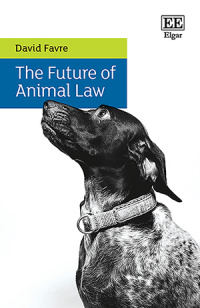Results
| Title | Citation | Alternate Citation | Summary | Type |
|---|---|---|---|---|
| BURLINGTON & M.R.R.R. IN NEBRASKA v. CAMPBELL | 59 P. 424 (Colo.App. 1899) | 14 Colo.App. 141 (Colo.App. 1899) |
In Burlington & M.R.R.R. in Nebraska v. Cambell , 14 Colo. App. 141 (Colo. Ct. App. 1899), plaintiff’s horse was killed by a train. Although the court reversed the verdict for the plaintiff for failure to prove defendant’s negligence, the court allowed witness testimony on the market value of the mare. |
Case |
| Journal of Animal and Natural Resource Law Vol. 8 |
Published by the students of Michigan State University College of LawJournal of Animal & Natural Resource Law Vol. VIII (2012)The table of contents is provided below. |
Policy | ||
| Stauber v. Shalala | 895 F.Supp. 1178 (W.D.Wis.,1995) |
Court found that milk consumers failed to prove that milk gained from rBST-treated cows contains higher levels of antibiotics, tastes different, or differs in any noticeable way from "ordinary" milk. That consumers might demand mandatory labeling was not enough to require labeling; rather, the FDA was required to ensure that products are not misbranded and consumer demand could not require the FDA to forgo this duty. |
Case | |
| Alternative Research & Dev. Found. v. Veneman | 262 F.3d 406 (D.C. Cir. 2001) | 347 U.S.App.D.C. 296, 50 Fed.R.Serv.3d 1046, 32 Envtl. L. Rep. 20,142 |
An animal rights foundation sought to have the definition of “animal” amended, so that birds, mice and rats used for research would not be excluded. USDA agreed to consider the animal rights foundation petition to have the definition amended, and agreed to do so in reasonable amount of time. The National Association for Biomedical Research (NABR), a biomedical research group that used birds, mice and rats in its research, attempted to intervene and prevent USDA from considering the petition. However, NABR was prohibited from doing so because there was no showing that preventing intervention would result in its interests not being violated. |
Case |
| Deardorff v. Farnsworth | 343 P.3d 687, review denied, 358 Or. 145 (2015) | 268 Or.App. 844 (2015) |
In this case, the Oregon Court of Appeals was reviewing whether or not the trial court erred in holding that an insurance company was estopped from relying on an exclusion in an insurance policy. The plaintiffs in this case were transporting horses in California that were owned by other when the trailer carrying the horses caught fire. The insurers for the horse owners compensated the horse owners and then filed an action against plaintiffs. As a result, plaintiffs charged the defense of the action to their insurer, OMI. OMI refused to provide a defense for the plaintiffs, arguing that it was not covered in the insurance policy. Plaintiffs filed an action against OMI to recover the costs arguing that they were verbally told that this would be covered in the policy. The trial court ordered summary judgment for the plaintiffs, holding that OMI was estopped from denying liability because it had breached its contract with plaintiff. Ultimately, the court of appeals reviewed the issue and determined that the trial court had erred in its decision. The court of appeals found that based on applicable case law, estoppel cannot be used to negate an express exclusion in an insurance policy. As a result, the court reversed the trial court's decision and remanded the case. |
Case |
| Bloomfield Estates Improvement Ass'n, Inc. v. City of Birmingham | 737 N.W.2d 670 (2007) | 479 Mich. 206 (2007) |
In this Michigan case, a property association brought an action against the city of Birmingham to enforce a deed restriction. The association alleged that the city's plan to build a dog park violated the residential use restriction in the deed. The Circuit Court of Oakland County granted the city's motion for summary disposition; the Court of Appeals reversed. The Supreme Court held that the city's use of the lot as a “dog park" (a fenced area where dogs could roam unleashed with their owners) did indeed violate the deed restriction limiting use of land to “strictly residential purposes only.” Further, despite the association's failure to contest the previous use of the land as a vacant park, the association could contest the dog park violation because the former use was deemed a "less serious" violation. |
Case |
| Revista Brasileira de Direito Animal Volume 18 |
SUMÁRIOEDITORIAL Heron Gordilho............... Direito Animal Comparado/Comparative Animal Law |
Policy | ||
| The Future of Animal Law |
The Future of Animal Law, David Favre, Professor, Michigan State University College of Law, Edward Elgar Publishing (2021).
|
Policy | ||
| People v. Schneider | 2004 WL 2191322 (Ca. App. 3 Dist.) | 2004 WL 2191322 (Ca. App. 3 Dist.) |
Defendant's dogs escaped from Defendant's yard and attacked and killed a six-year-old boy. The trial court convicted Defendant of owning a mischievous animal that causes death and involuntary manslaughter. The Court of Appeals reversed and remanded the trial court's conviction for owning a mischievous animal that causes death due to erroneous jury instructions. |
Case |
| Amburgey v. Sauder | 605 N.W.2d 84 (Mich. 1999) |
Plaintiff was bitten by a horse as she walked through a stable. The court determined that Plaintiff was a “participant” for the purposes of the Equine Activity Liability Act (EALA), and thus the Defendant stables owner was insulated from liability arising out of the unanticipated, abnormal behavior of the horse. |
Case |
